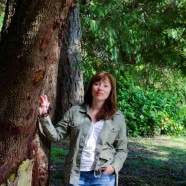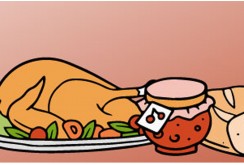
Native American women have played a big role in opposing the Dakota Access Pipeline, but the activism of indigenous women didn’t start there. For Native American women in particular, their work goes back even farther, and they draw inspiration from the wisdom and ways of their ancestors.
Filmmaker Keri Pickett, whose new film First Daughter and the Black Snake chronicles the work of indigenous activist Winona LaDuke, talked with us about her new film and how a new way of looking at the planet might help us save the planet after all.
PR4P: What inspired you to make the film?
PICKETT: I admire Winona’s environmental justice work, which is focused on tribal sovereignty, food and energy independence and cultural preservation. When she won the Reebok Human Rights Award in 1988 she took the proceeds and started the White Earth Land Recover Project (WELRP) to buy back land to be reunited with the reservation land and to revive cultivation and harvesting of wild rice, a traditional food of the Ojibwe people. The WELRP produces and sells traditional foods and crafts through its label, Native Harvest. She has fought the genetic patenting of wild rice and her run for vice-president with Ralph Nader helped put indigenous, green issues of sustainability on the map.
When I saw in the paper that Enbridge was planning on putting a pipeline through the Ojibwe territory, I knew I had to make a film as this would be her biggest adversary, with Minnesota’s environment and a fifth of the world’s fresh water at risk.
PR4P: How does the indigenous framework (or lens) differ from that of traditional environmental or social activism framework?
PICKETT: Having natural law as the basis of the societal values changes everything. Nature’s grace and goodness is recognized at every circle, gathering, or action. Indigenous communities’ connection to the natural world includes the four directions and the earth, sun and stars.
Traditional wisdom inspires me and I want to help mend the sacred hoop of Indigenous history from the tremendous amount of historic trauma inflicted on them as Europeans took the land and resources, practicing genocide.
Indigenous history has been written by the European point of view and so it is very important to lift up native communities concerns and ways of life as their values can help heal us from the damage we have done to the earth and to indigenous communities.
PR4P: What do you want people to know about your film and the power of indigenous women?
PICKETT: Traditionally women are the keepers of the water, and so Winona’s voice is more important now than ever before as water emerges as a human right and one of the most important elements on earth. Indigenous women have always had to protect their community from the poisons of extreme energy extraction, the poison of racism and the poisons of modern life. Indigenous women have helped to shape my values and world view. I hope to share Winona’s life so that others can be inspired by her values and her actions. One person can make a difference in the lives of many.
Pickett’s film is currently on the festival circuit and was featured at the fourth Native American Women in Film &Television Festival in Los Angeles in February 2017.
JoAnne Dyer is a Seattle-based writer and editor. She specializes in working with change-makers. Her clients include publishers, self-publishing authors, nonprofits, and small businesses. JoAnne is PR for People's ground reporter covering tribal news.











